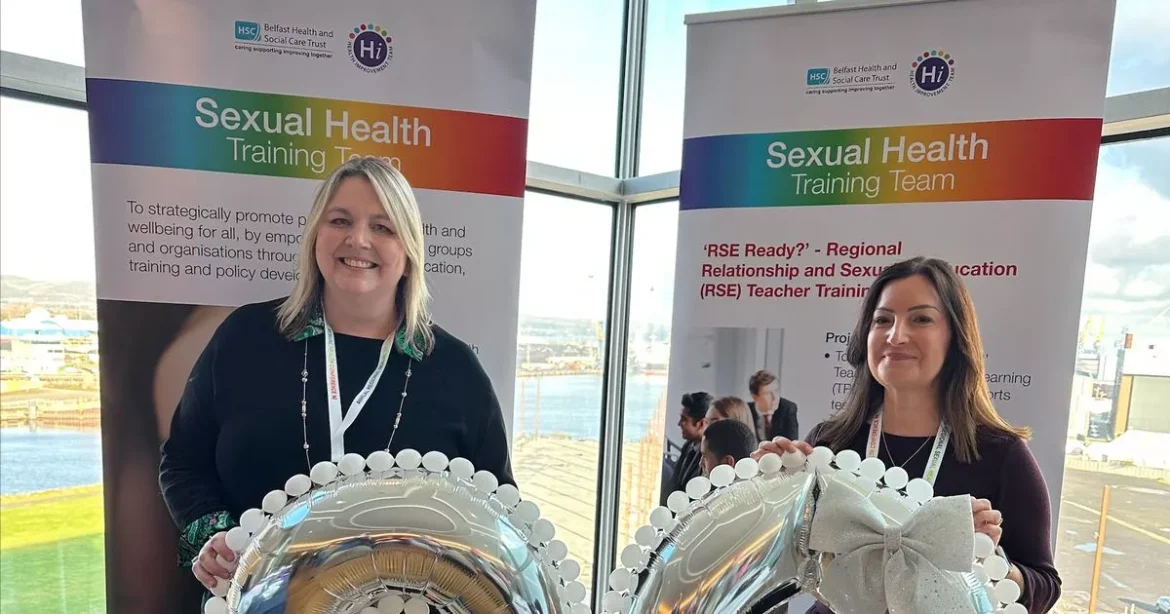They have seen a decline in people attending sexual health clinics for advice
Healthcare professionals in Northern Ireland have warned of a rise in misinformation on social media surrounding contraception.
An increasing number of young people are turning to TikTok and other platforms to get their sexual health information, without any evidence-based decisions.
Dr Siobhan Kirk, consultant in sexual and reproductive health at the Belfast Trust, said she has noticed less people coming to access contraception and a rise in repeated unplanned pregnancies. A majority of those who do come in are now opting for non-hormonal contraception, due to misleading social media advice around hormones.
READ MORE: Irish model shares video that captured moment she suffered stroke while training at gymREAD MORE: ‘I’m on a 51 year mission to spread kindness to a stranger every single day’
Arlene McLaren, CEO of sexual health organisation Common Youth said they are concerned by a lack of balance on social media, with most advice surrounding contraception being based on personal, negative experiences. She said such disinformation is highlighting a reluctance to trust medical professionals.
Speaking to Belfast Live at the Regional Sexual Health Conference hosted by the Belfast Trust, Dr Kirk said many people attending their clinics have expressed concerns surrounding hormonal contraception.
She said: “We’re seeing a lot of women who are anxious about potential side effects with hormonal contraception that they’ve seen which may be overplayed on social media. They’re also very apprehensive about procedures such as getting an implant in, or a contraceptive coil fitted, which for the majority of people are totally fine and there are pain relief options available.
“People are coming in worried it’s [hormonal contraception] going to make them put on weight, or affect their mood – all sorts of things. There are lots of different hormonal methods of contraception – even the pill, there isn’t just one pill, there’s lots of different brands and types of pill.
“So the fact you’ve had a bad experience with one, doesn’t necessarily mean you’ll have a bad experience with a different form of hormonal contraception.”
Dr Kirk highlighted some of the non-contraceptive benefits of hormonal contraception, including lighter periods, reduced risk of ovarian/endometrial cancer, and prevention/treatment of endometriosis. She said use of these can help reduce waiting lists in some cases.
“They can also help women who have PMDD and heavy painful periods, there are a lot of women waiting a long time on gynaecology waiting lists in Northern Ireland who could be helped in the meantime by hormonal contraception,” she explained.
“There are so many non-contraceptive benefits to hormonal contraception, and we are now doing a pilot in the Belfast Trust where we are offering consultations for management of heavy or painful menstrual bleeding.
“Women are waiting for up to a year to be seen within primary care to get a coil or implant fitted, which is just crazy, when you can come down to our clinic at College Street and get it within a few days.
“I would not have been able to go to university, become a doctor, and do the work I do without hormonal contraception, due to heavy periods.”
Common Youth provide sexual health services for young people under 25 at their walk-in clinic on Waring Street in Belfast. CEO Andrea McLaren said they are working with young people to make informed choices about contraception.
She said: “While some of the social media content is helpful, a lot can be misleading. This can leave them without the clear, accurate information they need to make informed choices about hormonal contraception, and that’s why listening to young people is so important.
“There are all these resources online but there’s not much positive. What you see is the more negative experiences online, there is some of it that can be helpful, but the majority will be somebody’s personal experience.
“Understanding their concerns and where they’re getting the information helps us to respond in the right way. If we communicate well and provide accessible factual guidance, we can really make a difference in their confidence and their decision making skills.
“In some cases, we’re finding young people are going and accessing social media, and usually we find there’s a lot of negative information there. That discourages them from actually looking for more information or accessing services, because they think it will happen to them, and they don’t realise there’s choices out there and different forms of contraception.”
You can find out more about the Belfast Trust contraceptive clinics by clicking here, and Common Youth by clicking here.
For all the latest news, visit the Belfast Live homepage here and sign up to our daily newsletter here.
#Northern #Ireland #health #services #warn #rise #contraception #misinformation #social #media
